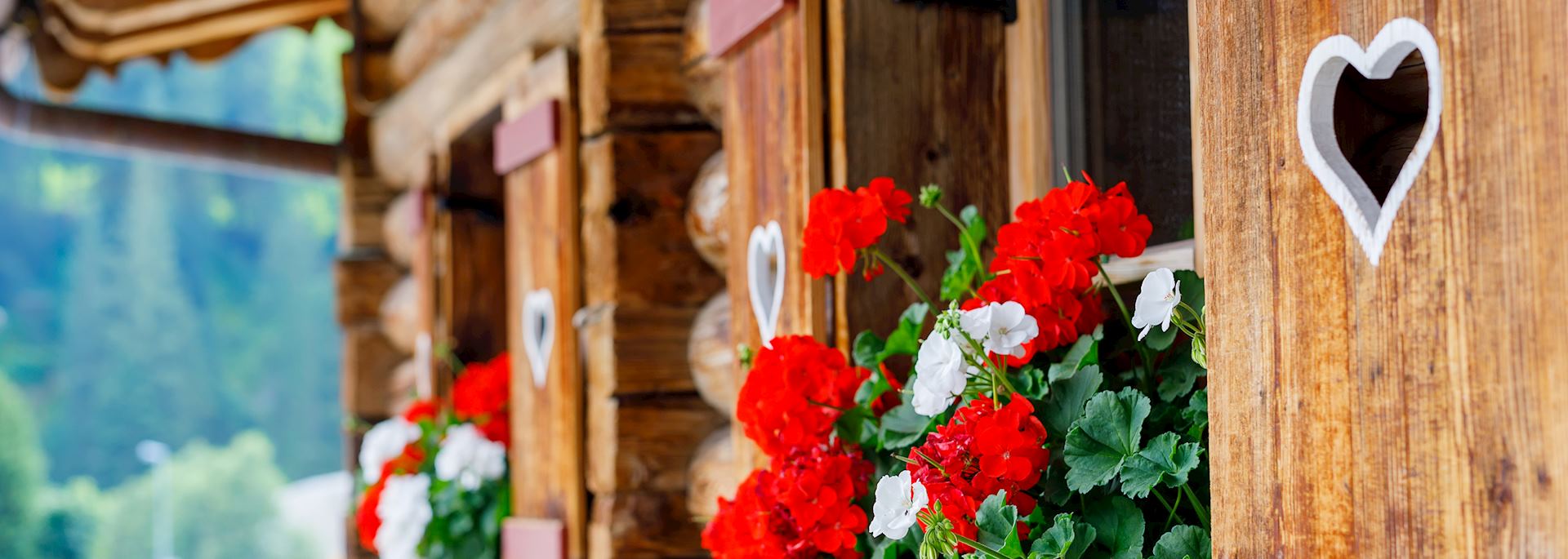Practical Information
Though Austria is a popular destination, we offer new and different ways to look at the country. We鈥檒l listen to your personal needs and tastes and then design a trip that鈥檚 tailored specifically to you. We can send you to the right destinations and find the best experiences using our extensive knowledge of Austria to get you away from the crowds and make a personal connection with the country.
Language
The official language is German across the country, though you’ll find many locals speak English in Vienna. English is also common, though not as prevalent, in Salzburg, the lakes region and Innsbruck.
Food & drink
As in Germany, hearty meals are king in Austria. Traditional Austrian cuisine is based on meat and potatoes, noodles, beer, cheese and other filling foods. Perhaps the best-known Austrian dish is Wiener schnitzel, but some in the country also claim (somewhat controversially) it’s the original home of goulash.
Outside the large cities, most of the restaurants will feature this heavy fare. However, there’s a wide selection of both traditional and international eateries in the cities. This is especially true in Vienna, which boasts a lively restaurant scene. The city is also known for its centuries-old tradition of exceptional pastries and cakes, including Apfelstrudel, Sachertorte and Kaiserschmarrn, a fluffy, shredded pancake that’s topped with fruit compotes and named after Emperor Franz Joseph I.
In mountainous regions, you’ll find Swiss and French influences with fondue, raclette and other cheese-based dishes.
Festivals & holidays
Most of Austria’s 15 official holidays are drawn from the Christian calendar, but Austrians also celebrate New Year’s Day, 1st of May and Austrian National day on 26th October.
The country’s festivals are largely divided by season. During the warm months between April and September, the country overflows with celebrations of classical music, especially in Vienna. The capital is also home to one of the largest and most prestigious jazz festivals in the world each June and July. Additionally, the country celebrates the summer solstice on the shortest night of the year with bonfires, especially in the mountains. Some towns create fiery symbols and Christian motifs.
In December, the cities and towns light up with festive Christkindlmarkts selling crafts, food and drinks.
Tipping
All of Austria uses the euro and ATMs are widely available and easy to use. Small tips (about 5%) are expected in restaurants, though you can offer 10% for exceptional service.
Tip just a few euros for short-distance taxi rides. Plan to tip about €40 for a full-day guide, €20 for a half-day — a little more if they are exceptional.
Communications
Austria’s country code is +43. We suggest that you speak to your phone provider before you visit to purchase international data packages. You can also buy a SIM card in Austria if that’s compatible with your phone.
Wi-Fi is widely available in the cities, though coverage is spotty in the Alpine and lakes regions.
Travel Advice
Our country specialists can advise on any safety concerns you may have. For current information, please refer to the .
When to go to Austria
You'll find temperature and rainfall information, together with a month-by-month guide on visiting, on our guide for when to go to Austria.
More Information
-
Flight Time
2 hours 30 upwards dependent on airline (London to Vienna) -
Time Zone
UTC +1
